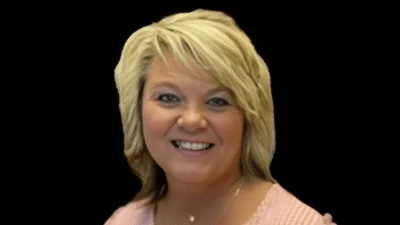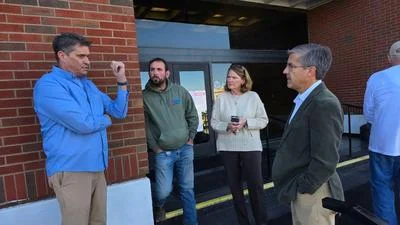Dale Fowler said downstate students have been shortchanged for more than 10 years. | File photo
Dale Fowler said downstate students have been shortchanged for more than 10 years. | File photo
Harrisburg's Dale Fowler, the Republican candidate for state Senate in District 59, spoke up on education and education funding recently.
After his opponent, state Sen. Gary Forby (D-Benton), released a campaign ad claiming that Fowler supported taking school funding away from Southern Illinois and giving it to the Chicago Public School system, Fowler spoke up with the facts.
In the ad, Forby blamed Fowler for backing Gov. Bruce Rauner's education plan. Ironically, Forby voted for the SB 2047 stopgap budget that bailed out the Chicago Public Schools. In fact, as Fowler pointed out in his blog, Forby issued a news release after the vote.
"Southern Illinois schools will not only open on time this fall, but we will finally see our fair share," Forby said. "It was a fight, but once the governor agreed to drop his demands, we were able to move forward on making sure our school children have the resources they need to succeed."
While the stopgap budget provided funding that allowed K-12 schools to open in fall, it added $250 million in poverty grants. Chicago schools received approximately $100 million while the remainder went to low-income, downstate districts. Early education funding was increased by $75 million. The bill guaranteed that every district would receive as much or more than it did in FY 2016.
Higher education also received approximately $1 billion to partially fund colleges and universities through the start of FY 2017. The budget also ensured that the schools will be reimbursed more than $150 million for the MAP grants paid out in FY 2016.
Despite Forby's claims, Fowler specifically said that funding should not be transferred to Chicago from Southern Illinois communities.
“It seems as though we are being forced to bail out Chicago due to lack of good leadership throughout the last decade,” Fowler said. “Rather than bailing out Chicago we should reform our system and invest in our students and not bureaucracy.”
The day before the stopgap budget was passed, Fowler expressed his frustration with the legislature on his Facebook page.
"Stopgaps and insulting votes to spend billions more than we have are irresponsible," Fowler wrote. "Our elementary and high school students are not stopgaps. Our educators are not stopgaps. Our universities do not employ or instruct stopgaps. Our social service agencies serve us, serve our neighbors, and serve our communities. We do not have stopgap lives. We are people. We are your constituents. And we demand that you finally do your jobs."
Fowler has clearly stated that he supports fair education funding. He believes that all students deserve the same level of education no matter where they live, and said downstate students have been shortchanged for more than 10 years and it is time to change the way schools are funded.
Fowler's stance on education also includes his support for classroom-based decisions made by students, parents and educators. The local groups are familiar with the students and culture of Southern Illinois and can make better decisions on what is best for the schools than bureaucrats and politicians in Springfield and Chicago.
He believes that talented teachers and technology are essential to the student's success. Teachers should be rewarded for their work in empowering student learning while encouraging parents to remain active participants in education.
Vocational training is also an important issue in Fowler's education stance. Not all students are college-bound and their educations should not be neglected. Skilled trade and technical training provides a multitude of opportunities for those students who are not interested in a four-year college degree. Entry-level training prepares vocational students for tech schools, apprenticeship programs or jobs after high school.






 Alerts Sign-up
Alerts Sign-up